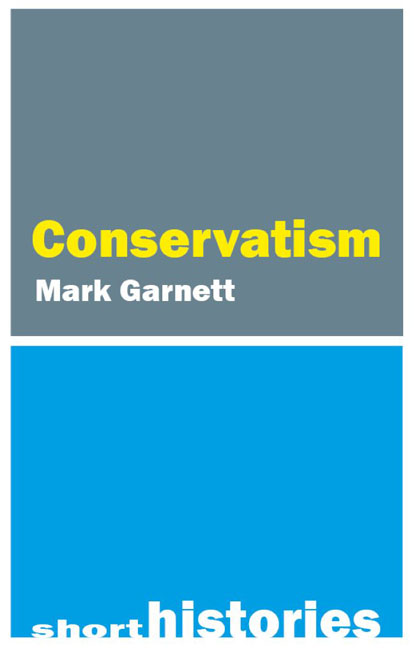Book contents
- Frontmatter
- Contents
- Preface
- 1 The contestable conservative tradition: Burke to Southey
- 2 The Conservative Party from Peel to Salisbury
- 3 “Converging streams”: British conservative thought from Southey to Cecil
- 4 The Conservative Party, 1902–45
- 5 “We must have an ideology”: conservatism since the First World War
- 6 The Conservative Party since 1945
- Conclusions: “Is conservatism dead?”
- Chronology of conservatism and the Conservative Party
- Further reading
- Bibliography
- Index
1 - The contestable conservative tradition: Burke to Southey
Published online by Cambridge University Press: 20 January 2024
- Frontmatter
- Contents
- Preface
- 1 The contestable conservative tradition: Burke to Southey
- 2 The Conservative Party from Peel to Salisbury
- 3 “Converging streams”: British conservative thought from Southey to Cecil
- 4 The Conservative Party, 1902–45
- 5 “We must have an ideology”: conservatism since the First World War
- 6 The Conservative Party since 1945
- Conclusions: “Is conservatism dead?”
- Chronology of conservatism and the Conservative Party
- Further reading
- Bibliography
- Index
Summary
Most commentators on modern conservatism agree in identifying the Irish-born author and politician Edmund Burke (1726–97) as its first major figure. In 1930 a former MP, Arthur Baumann, published Burke: The Founder of Conservatism. For the American historian Peter Viereck, conservative thought “begins with Burke”, and the publication of Burke's Reflections on the Revolution in France in 1790 was an ideological landmark to match the appearance of The Communist Manifesto in 1848 (Viereck 1956: 10). Lord Hugh Cecil even gave conservatism a birthday – 6 May 1791, when Burke's opposition to the French Revolution produced a public breach with the leadership of the Whig Party (Cecil 1912: 43; where the nativity is misdated to 1790). More recently, the MP Jesse Norman argued that “in many ways [Burke] was the first conservative, the founder: the first person who can properly lay claim to having forged conservatism as a distinctive body of thought” (Norman 2013: 282).
There are alternative and earlier candidates for the parentage of modern conservatism – Benjamin Disraeli, for example, was a passionate admirer of Henry St John, Viscount Bolingbroke (1678–1751), author of The Idea of a Patriot King, and the sceptical Scottish philosopher David Hume (1711–76) anticipated Burke in important respects. However, although Burke's Reflections was written in response to a single, momentous historical development, it incorporated numerous passages whose implications reached beyond revolutionary France, and could be said to constitute an appeal to “first principles”. Burke had two immediate aims – to attack the ideas which, he felt, had inspired the revolutionary movement in France, and to quash symptoms of a similar insurgency in Britain itself. The danger of such ideas, Burke argued, lay chiefly in their propensity to encourage radical change. No system of government could be perfect, and it was the duty of responsible politicians to propose reforms once defects became too glaring to ignore. But even such imperative changes should be introduced gradually. Root-and-branch reform could lead to a breakdown of political and social order. This was particularly the case if the radical proposals were inspired by abstract ideas which showed insufficient respect for established practices.
- Type
- Chapter
- Information
- Conservatism , pp. 1 - 28Publisher: Agenda PublishingPrint publication year: 2023

